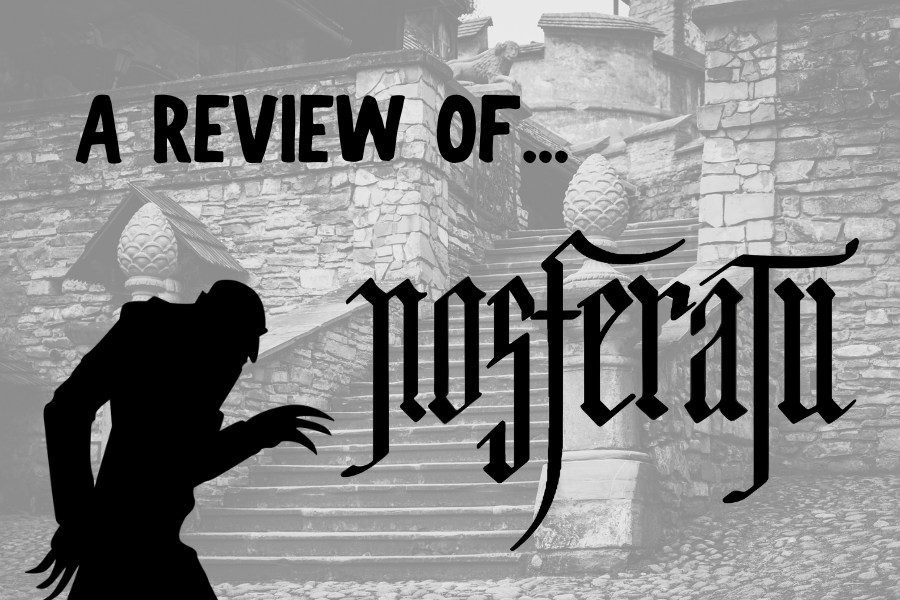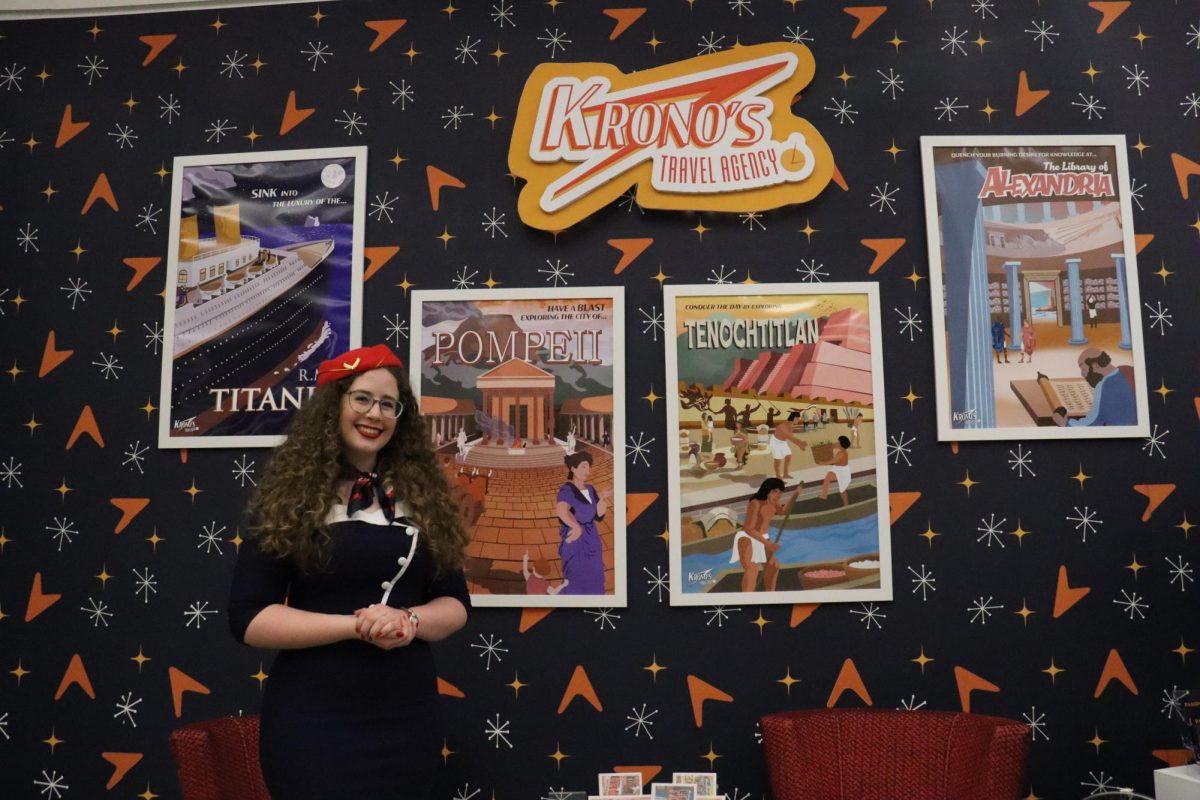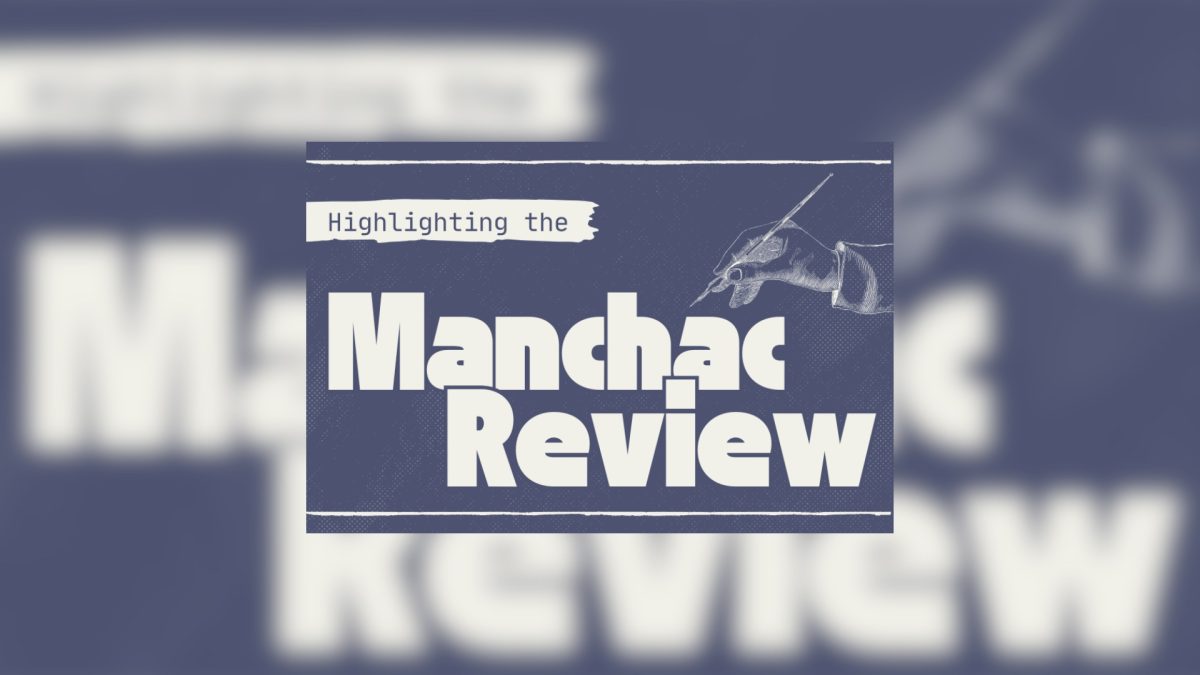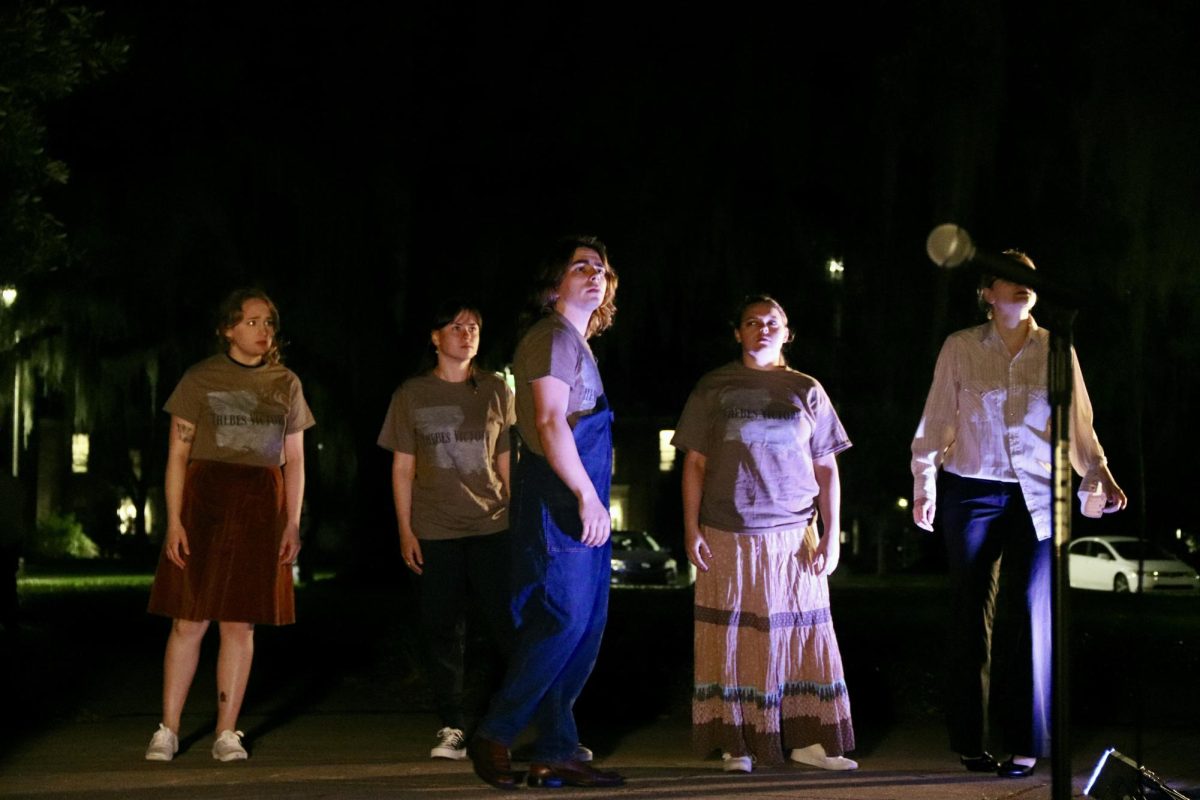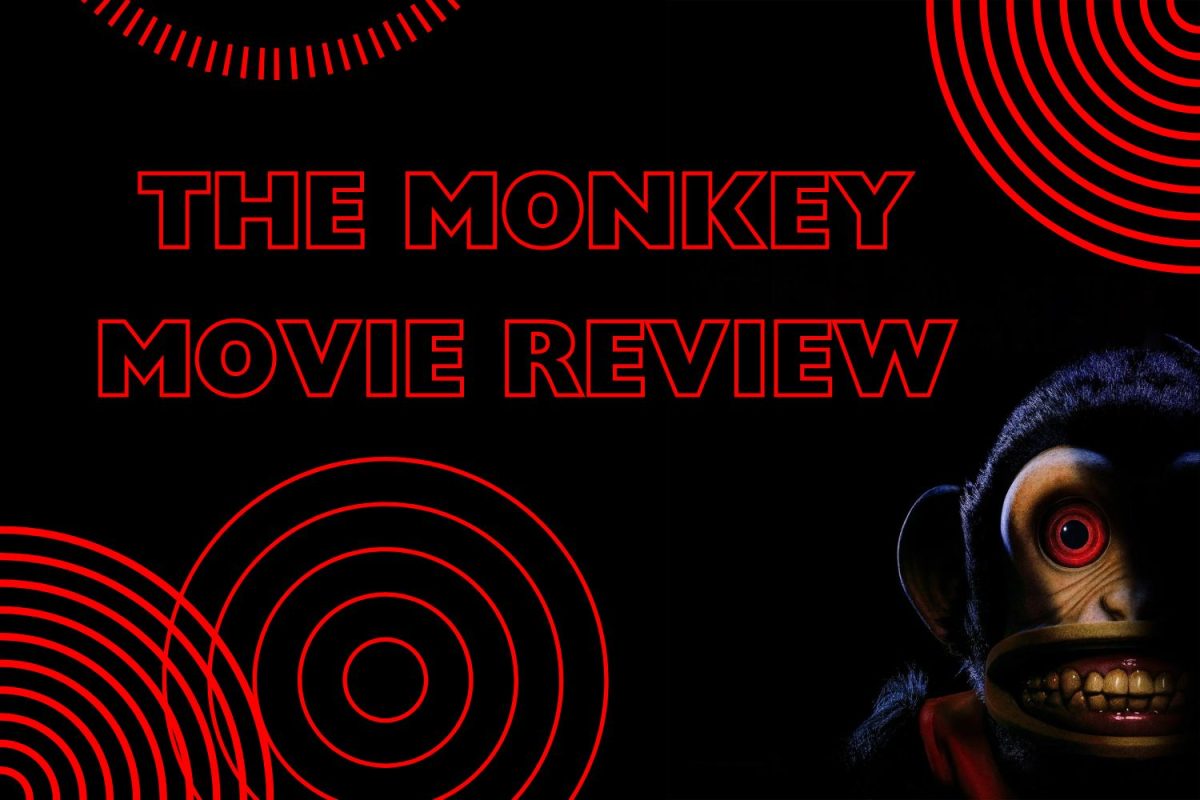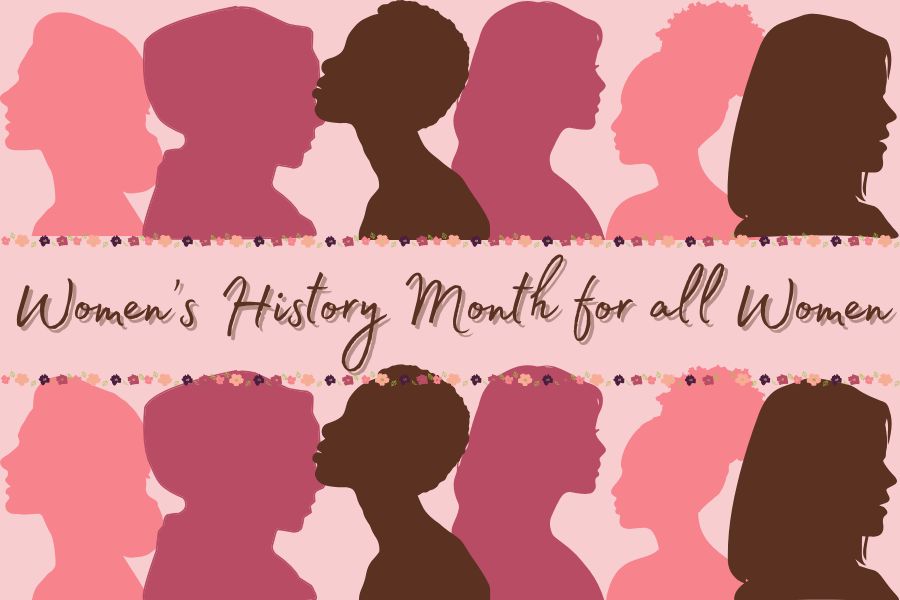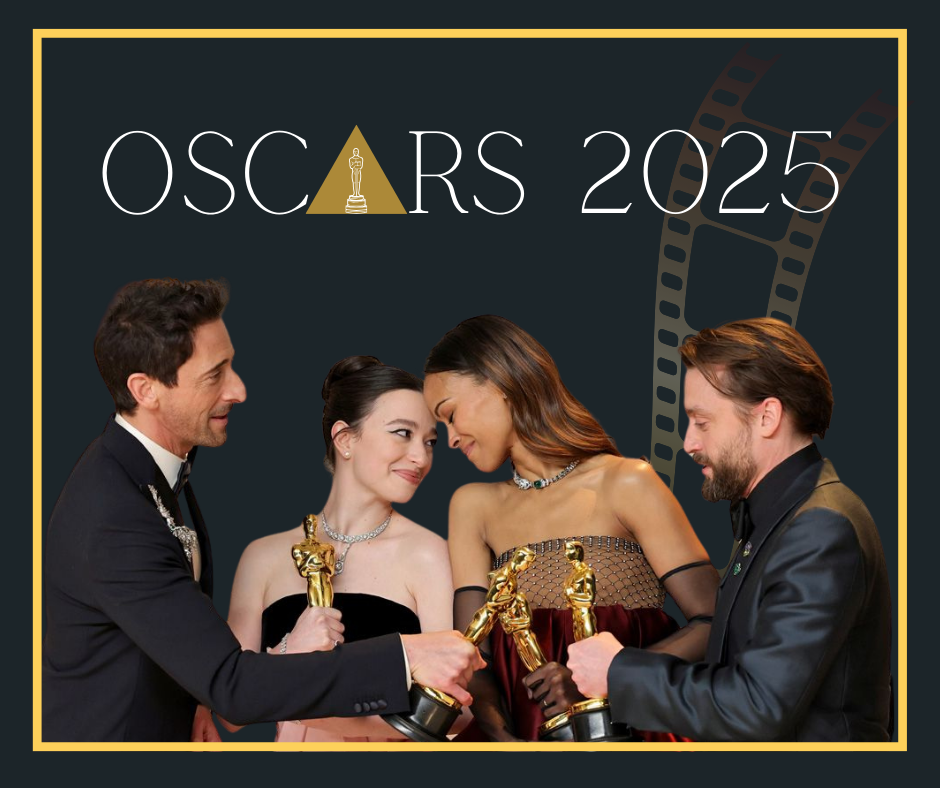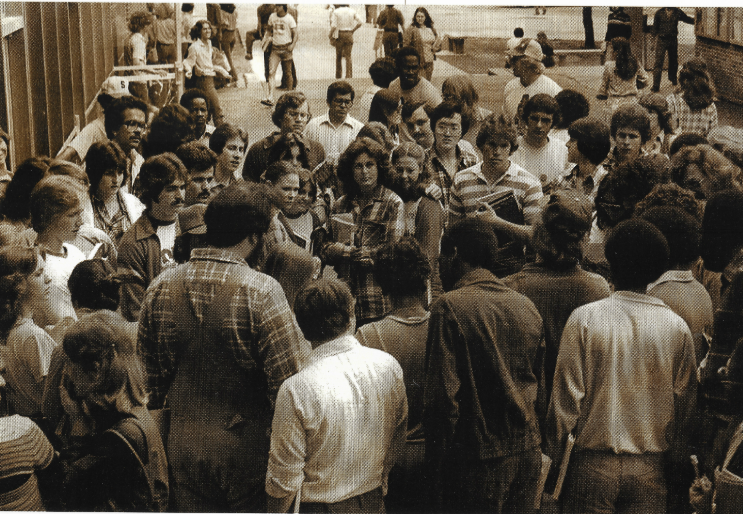|
Getting your Trinity Audio player ready...
|
Romantic horror is not for everyone. Some, including myself, find the polarizing sub-genre of films to be the perfect recipe for an absorbing plot. One of the box office hits to fit into the romantic horror genre includes director Robert Eggers’ 2024 film, “Nosferatu.”
Released on Christmas Day in the U.S., “Nosferatu” is an adaptation of the 1922 silent German expressionist film, “Nosferatu: A Symphony of Horror,” directed by F.W. Murnau. Both films and the character of Nosferatu himself can be attributed to Bram Stoker’s iconic 1897 novel “Dracula.”
The premise closely follows the same storyline as the 1922 film, but with a more modern touch, executed by Eggers’ unique filmmaking style. To me, “Nosferatu” was not just another remake but a haunting reinvention of an iconic, horrific character.
Set in 1830s Germany, the film centers on Count Orlock (aka Nosferatu), a mysterious vampire who is infatuated with a young woman named Ellen Hutter.
Thomas Hutter, Ellen’s husband and a real estate agent, must travel to Transylvania to meet with Count Orlock and finish up a property deal. Ellen is left to stay with their friends, the Hardings, and during her stay, she’s plagued by Count Orlock’s evil forces.
Eggers is known for his dark and macabre films, such as “The Lighthouse,” “The Witch” and “The Northman.” When I saw he was the one to reinvent such a classic horror story, I was excited to see his vision.
Specifically, I was hoping Eggers would succeed in delivering the experience I wanted during the film, that of being uncomfortable yet unable to look away.
I was very impressed by all of the actors’ portrayals of their characters. Lily-Rose Depp, who plays Ellen, made the audience audibly gasp at her ability to portray an accurate “possession,” in the way she moved her body and showed so much raw emotion.
Ellen and Count Orlock’s relationship is dominating, interdependent and unearthly, which is exactly what I was hoping to see.
Count Orlock is played by Bill Skarsgard, who outstandingly upholds the chilling and mysterious nature of the vampiric creature. Really, I consistently felt the effort and determination that each of the actors in the film had through the screen.
Just as impressive as the actors, if not more, was the cinematography. Eggers, who is known for his ability to create films that are somehow both visually stunning and jarring, did just that in this adaptation.
Since I watched the film in a movie theatre, I was fully immersed in its visual and audio aspects. The color scheme featured a muted, gothic aesthetic, emphasizing the dark atmospheric tone of the story.
The use of muted colors, I felt, accurately reflected the period setting, and further reinforced Eggers’ commitment to historical accuracy.
One scene in particular, where Thomas Hutter stands in the center of the path toward Count Orlock’s castle, is jaw-dropping. It evoked a great sense of dread and unease and was a symbolic representation of what was to come of his character.
The score or soundtrack of a film enhances the experience and bridges the gap between the audience and the story. Robin Carolan, the composer for “Nosferatu,” delivered a spine-chilling score on a silver platter. I found the mix of the nursery rhyme-esque and dissonant soundtrack to be perfect alongside the unsettling scenes.
“Nosferatu,” like all other films, does address larger themes, but it’s ultimately up to the audience to decide its most important message. In my opinion, “Nosferatu” is a story about isolation, power, lust and stolen innocence.
From the horror genre point of view, it nails all of the classic tropes directly on the head, such as body horror, demonic possession and the idea of “the final girl.”
The other half of the film’s genre that shined to me was the romance. Though tragic, it is undeniable that there are explorations of different forms of love within the plot.
Thomas and Ellen’s marriage was an example of classic “true love,” loving each other through thick and thin, sickness, and health. Count Orlock’s obsession with Ellen, however, provides the audience with an unhealthy and frankly parasitic form of relationship.
Overall, “Nosferatu” surpassed my expectations, and though I know this type of film is not everyone’s cup of tea, I still encourage people to watch it and explore the classic vampire tale through Eggers’ seductive and sinister adaptation.


